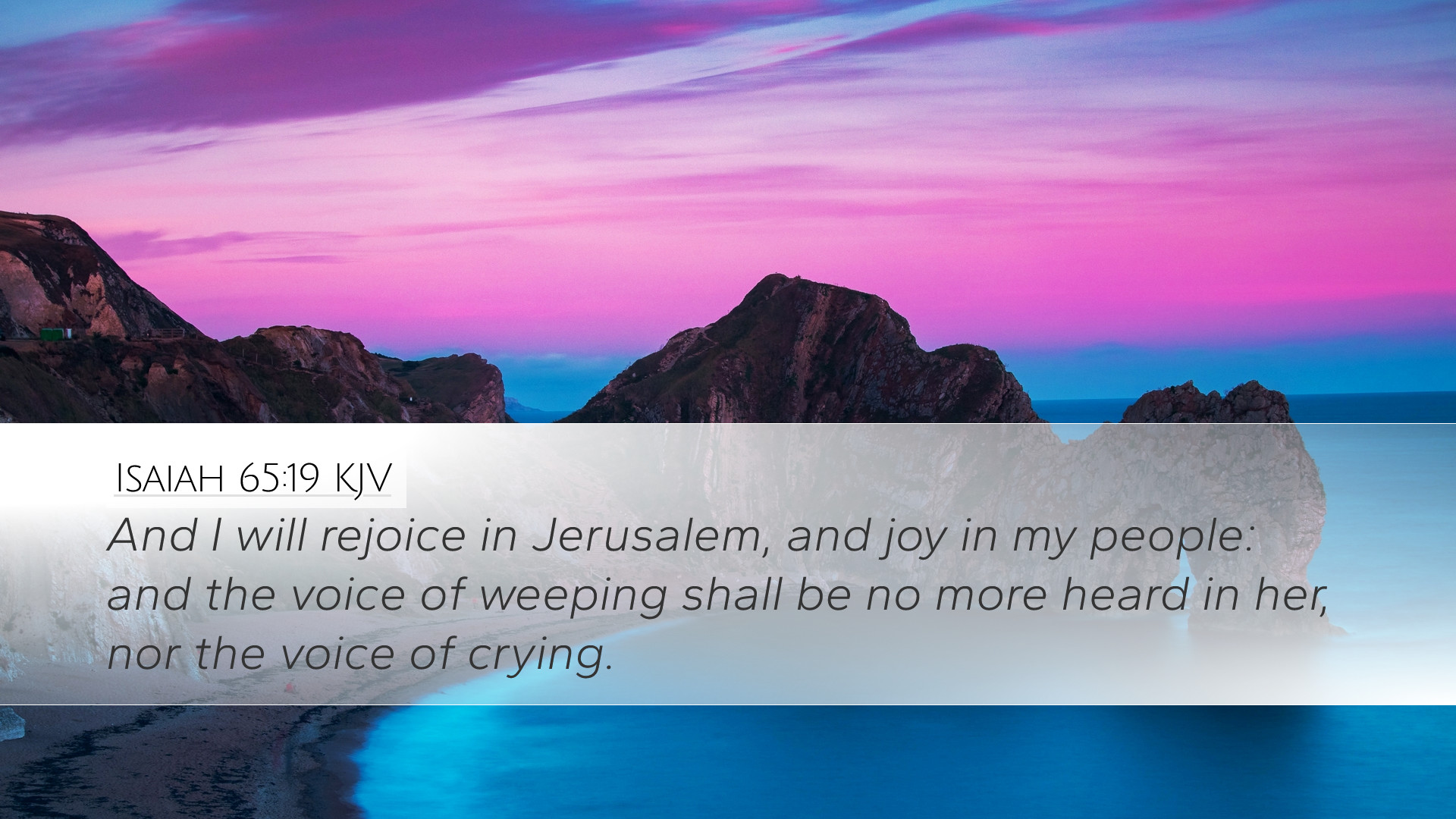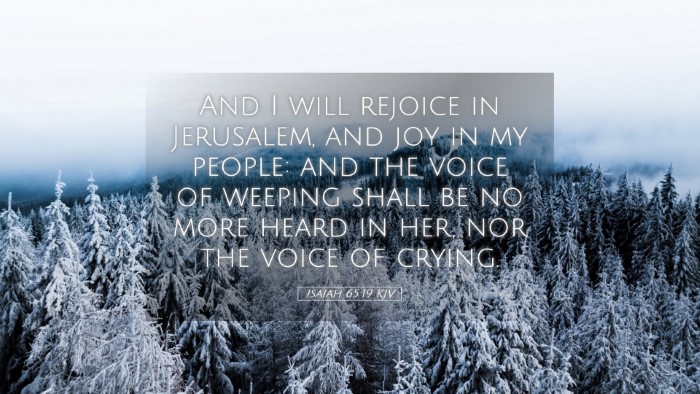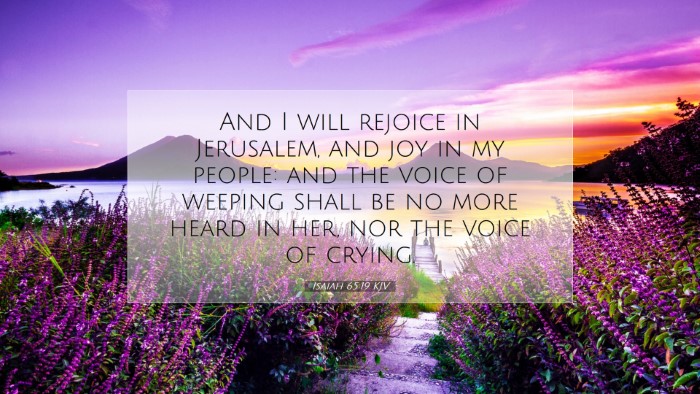Commentary on Isaiah 65:19
Isaiah 65:19 (KJV): "And I will rejoice in Jerusalem, and joy in my people: and the voice of weeping shall be no more heard in her, nor the voice of crying."
This verse emerges from a passage that reflects upon the transformative power of God’s redemptive plan for His people. It conveys hope and restoration after desolation and suffering.
Contextual Overview
This verse is set within the prophetic vision of the future Jerusalem, where Yahweh expresses His intentions to bring joy to His people. Here, the prophet Isaiah assures the Israelites of God's sovereign commitment to their welfare.
- Historical Background: The context of Isaiah’s prophecies largely addresses the tumultuous relationship between God and Israel, demanding repentance and fidelity. The latter chapters of Isaiah, particularly 65, shift focus towards a vision of redemption and renewed hope.
- Theological Implications: This passage delineates God's intentions not just for an earthly Jerusalem but also for a spiritual restoration. God’s joy in His people emphasizes their value and the deep communal bond between the Creator and creation.
Verse Discussion and Commentary
The Joy of the Lord
Matthew Henry notes that God's joy in Jerusalem illustrates His delight in His people, signifying a deep relational aspect of salvation. It represents the fulfillment of God's covenant promises and the realization of His kingdom amongst humankind.
The Absence of Weeping
Albert Barnes elaborates on the profound shift from mourning to joy, underscoring that the removal of “the voice of weeping” signifies the end of sorrow, grief, and distress. This restoration paints a picture of a new era where pain is eradicated, and divine peace reigns. The imagery evokes not just a physical restoration but a profound spiritual renewal.
Theological Reflection on Human Experience
Adam Clarke emphasizes the psychological and emotional dimensions of this promise. The verse reflects God's understanding of human suffering and His resolve to change our condition. Clarke calls attention to the audience's understanding of grief as it relates to divine presence, suggesting that where God is fully present, the reasons for sorrow cease to exist.
Practical Applications
For pastors, students, and theologians, this verse serves several practical implications:
- Ministry of Hope: The promise of joy and restoration can guide pastoral care, focusing on bringing hope to those in mourning. Understanding the divine sentiment of rejoicing can empower church leaders to reflect God’s nature in their ministries.
- Community Dynamics: Acknowledging the communal aspect of this joy encourages building a church community where the sorrow of one is shared by all, fostering an environment conducive to healing and rejoicing together.
- The Nature of God’s Joy: Reflecting on God's joy in His people can inspire believers to honor their own worth and dignity, emphasizing that every individual is significant in God’s eyes. This can enhance the collective identity of believers as cherished children of God.
Conclusion
Isaiah 65:19 blankets the believer in hope and joy, transcending the immediate context of the original audience to speak to the contemporary church. It invites pastors, scholars, and believers alike to meditate on the realities of God’s friendship, the promise of renewal, and a future free from sorrow.


